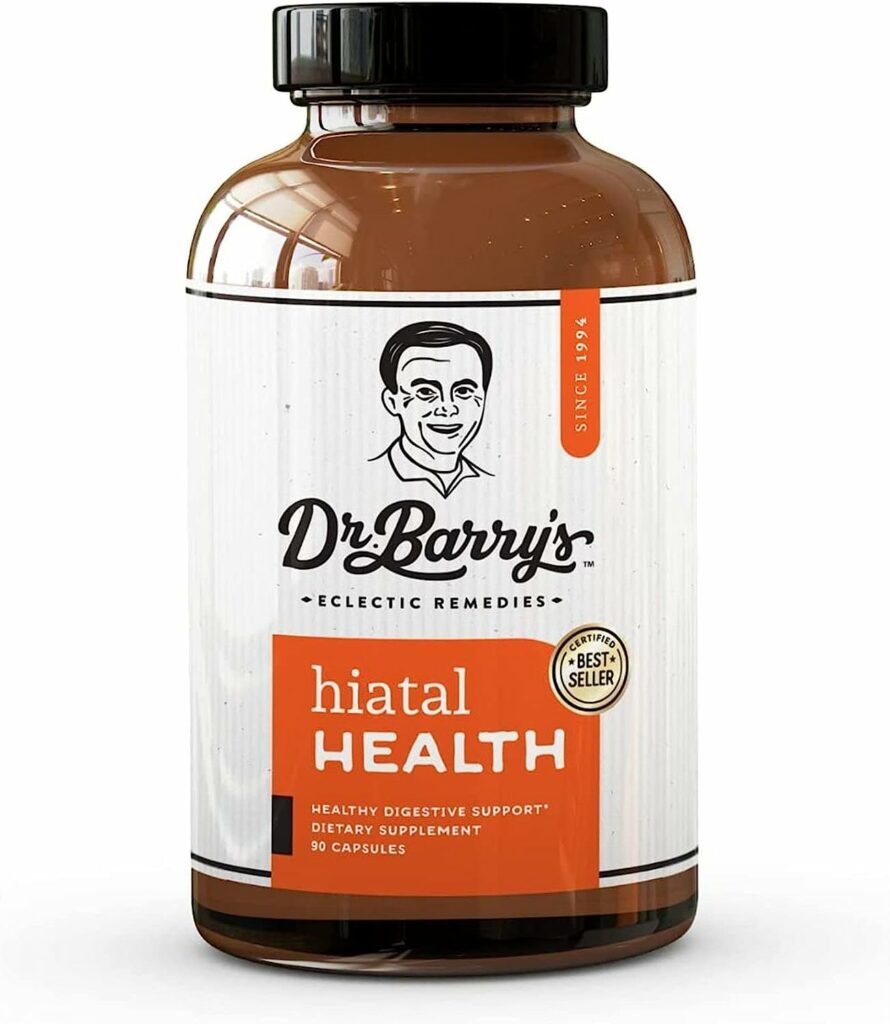A hiatal hernia is a medical condition characterized by the protrusion of a portion of the stomach through the diaphragm into the chest cavity.
This occurs when the upper part of the stomach bulges through the diaphragm’s opening called the hiatus.
While this condition may not always cause noticeable symptoms, it can lead to discomfort and complications for some individuals.
In this article, we will explore the causes, symptoms, and potential natural remedies for hiatal hernias.
Causes of Hiatal Hernia
The exact cause of a hiatal hernia is not always clear, but certain factors can contribute to its development.
The primary causes include:
- Weakening of the Diaphragm: The diaphragm is a large muscle that separates the chest cavity from the abdomen. As we age, the diaphragm may weaken, making it easier for the stomach to push through the hiatus.
- Increased Pressure on the Abdomen: Factors such as obesity, pregnancy, persistent coughing, or heavy lifting can put additional pressure on the abdomen, increasing the likelihood of a hiatal hernia.
- Congenital Factors: Some people may be born with a larger-than-normal hiatus, making them more susceptible to developing a hiatal hernia.
Types of Hiatal Hernia
There are two main types of hiatal hernia:
- Sliding Hiatal Hernia: This is the most common type and occurs when the junction between the esophagus and the stomach and a portion of the stomach slide up into the chest through the hiatus. This movement is typically triggered by changes in body position or pressure on the abdomen.
- Paraesophageal Hiatal Hernia: In this less common type, a portion of the stomach bulges up through the hiatus and remains there, next to the esophagus. This can cause the stomach to become trapped and twisted, potentially leading to complications like strangulation or obstruction.
Symptoms of Hiatal Hernia
Hiatal hernias do not always cause symptoms, and some people may only discover their condition during routine medical check-ups.
However, when symptoms do occur, they may include:
- Heartburn: Acid reflux is a common symptom of hiatal hernias, resulting from stomach acid flowing back into the esophagus due to the weakened barrier between the stomach and the chest cavity.
- Chest Pain: Some individuals may experience chest pain or discomfort, which can be mistaken for a heart attack. It is essential to differentiate between the two and seek medical attention if unsure.
- Difficulty Swallowing: Hiatal hernias can sometimes compress the esophagus, leading to difficulty swallowing (dysphagia).
- Belching and Hiccups: Frequent belching or hiccups may result from the stomach’s upward movement and irritation of the diaphragm.
- Regurgitation: The sensation of food or sour liquid backing up into the throat or mouth is known as regurgitation.
- Shortness of Breath: Larger hiatal hernias can put pressure on the diaphragm and lungs, causing breathing difficulties.
Natural Remedies for Hiatal Hernia
While medical intervention is necessary for severe or complicated hiatal hernias, mild cases may benefit from natural remedies and lifestyle modifications.
However, it is crucial to consult a healthcare professional before trying any alternative treatments to ensure they are safe and appropriate for your specific condition.
The following are some natural remedies that may provide relief from hiatal hernia symptoms.
1. Take A Hiatal Support Supplement
You should consider taking a hiatal support supplement when dealing with hiatal hernias.
Hiatal support supplements have several ingredients and herbs like milk thistle and quercetin that may help you with your acid reflux and indigestion.
These supplements should be used consistently in order to see the best results over time.
Our favorite is Dr. Barry’s Hiatal Health, mainly for its various natural ingredients like the mentioned milk thistle and quercetin that are specifically tailored to support digestive health.
All you need to do is take 3 capsules every day and you’ll get the supplement support you need during this time.
2. Diet Modifications
The following are four dieting modifications we recommend that may help with your hiatal hernia:
- Smaller Meals: Opt for smaller meals throughout the day to reduce the pressure on the stomach and minimize acid reflux.
- Limit Acidic Foods: Certain foods, such as spicy, acidic, fatty, and fried items, can exacerbate acid reflux. Limit or avoid them to ease symptoms.
- Chew Thoroughly: Taking the time to chew food thoroughly can aid digestion and reduce the strain on the digestive system.
- Elevate the Head of Your Bed: Elevating the head of your bed by a few inches can help prevent stomach acid from flowing back into the esophagus during sleep.
3. Lose Weight If You Need To.
If you are overweight, losing weight can lessen the pressure on your abdomen, which can help with your hernia and also reduce the risk of herniation.
Limit heavy weightlifting when dealing with herniations: implement lighter activities that help you break a sweat.
4. Apple Cider Vinegar
Apple cider vinegar may aid digestion and regulate stomach acid production, but use it cautiously, as excessive consumption may worsen acid reflux for some individuals.
5. Ginger
Ginger has anti-inflammatory properties that may help reduce irritation and improve digestion.
A Path To A Happier Abdomen
A hiatal hernia is a common condition that can cause discomfort and disrupt daily life for some individuals.
While severe cases may require medical intervention, mild hiatal hernias can often be managed with lifestyle changes and natural remedies.
By maintaining a healthy weight, following a suitable diet, and incorporating stress-reduction techniques, individuals with hiatal hernias can minimize symptoms and improve their overall well-being.
However, it is essential to consult with a healthcare professional to determine the most appropriate approach for managing this condition effectively.
Thanks for reading!
